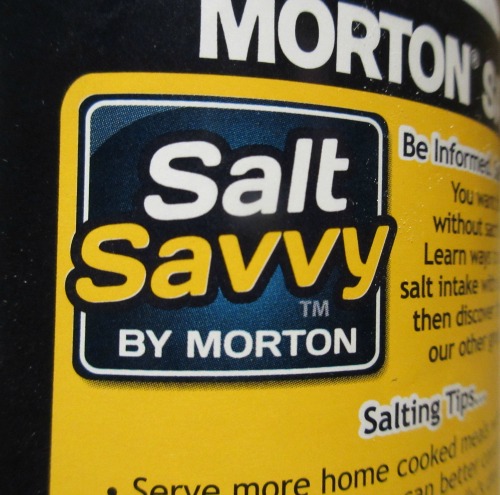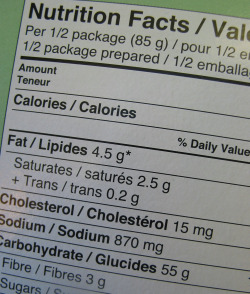Salt Intake
The proper level of sodium (salt intake) is essential to good health, ensuring the normal function of our nerves, muscles, brain and heart. Important as it is, we should consider our sodium intake each day, but likely don't. As a food preservative and flavor enhancer, sodium is found in virtually every grocery item that we buy each week – cereal, milk, juice, lunch meat, cheese, canned vegetables, soups, sauces, pickles, boxed dinners, soda, cookies, chips, et al.
We need sodium to ensure the normal function of cells and organs in our bodies, including the nerves, muscles, brain and heart. Our body requires a certain level of sodium to help maintain the balance of fluids, transmit nerve impulses and assist the contraction/relaxation of our muscles.
Sodium is normally excreted out of the body by our kidneys, but when sodium levels get too high, we retain that water and bloating occurs. When that happens, our hearts have to work all the harder to move blood through the arteries, in turn causing the walls of our arteries to stretch in order to accommodate the increased blood flow. Over time, that higher blood pressure damages both our heart and the arteries, potentially leading to heart attacks, strokes, kidney damage and aneurysms. Excessive salt intake is one of the causes of high blood pressure, which a third of all Americans over the age of 20 suffer from (many of whom don’t even know it).

The US Food and Drug Administration recommends a maximum sodium intake of
2300 mg/day. An eating plan known as DASH (Dietary Approaches to Stop
Hypertension) recommends a maximum 1500 mg/day, essentially the same
effect as taking a medication to lower high blood pressure. Similarly, the Dietary Guidelines for Americans (published every five years by the United States Department of Health and Human Services) recommends a maximum daily intake of 1500 mg for anyone over the age of 50, as well as for all Afro Americans and those affected by high blood pressure, diabetes or chronic kidney disease regardless of age.
Medical studies indicate that on average, American men consume 3500 - 4000 mg of salt per day and women just over 2900 mg/day. If such rates continue, the majority of us will develop high blood pressure in our 50s, 60s and 70s. Needless to say, those are now the age groups most important to us baby boomers!
Reducing Salt Intake
First off, we must realize that one single teaspoon of salt contains over 2300 mg of sodium, the maximum recommended daily allowance. Hence some tips for reducing sodium in our diets:
- The vast majority of our daily salt intake comes from processed food (e.g., bread, pasta, various meat and egg dishes, lunch meat/cold cuts, cheese, bacon, soup, et al) and prepared food (restaurant entries and fast food).
- Eat fresh fruits and vegetables (naturally low in sodium) and choose fresh meat over processed (e.g., ham, hot dogs, bacon, sausage, lunch meat, et al) along with poultry that has not been injected with sodium preservatives.

- Try to avoid those products that contain more that 200 mg of sodium in each serving (indicated on the Nutrition Facts label).
- Look for food packaging that indicates "low sodium" or "reduced sodium", but be aware that such claims are only relative; e.g., "50% less sodium" for a cup of soup that otherwise contains 800 mg of sodium is still 400 mg for that single serving.
- Reduce or eliminate altogether the amount of salt called for in cooking recipes; instead, use herbs, spices and fruit juices as needed flavor enhancements.
- Avoid or at least limit the use of high-sodium condiments such as ketchup, mustard,, salad dressing, soy sauce, dips and other sauces.
- Use caution with salt substitutes which may still contain some level of sodium together with other compounds such as potassium chloride (too much of that can be harmful to those with high blood pressure, congestive heart failure and kidney ailments).
Interestingly enough, we have an acquired taste for salt, and as we gradually reduce our intake, our flavor sense will adjust accordingly and we may get to the point where don't even miss it. But in all cases regarding our salt intake, it's always best to just "go low"!
- Home ›
- Eat Healthy ›
- Salt Intake
